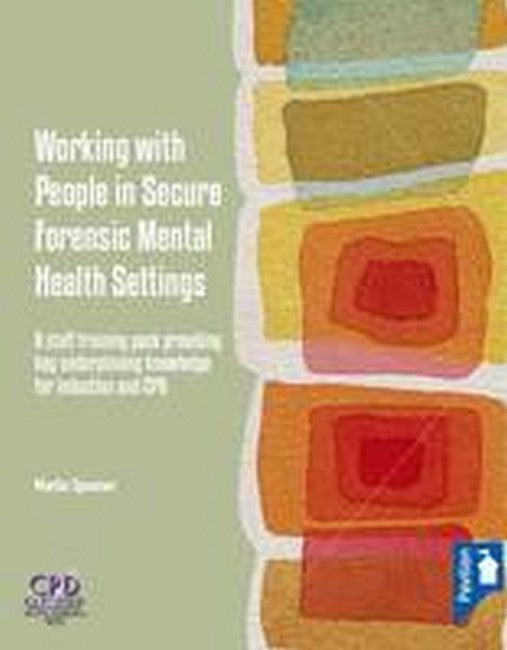Description
Introduction Unit 1: Understand the context of supporting individuals within a secure forensic setting Workshop 1: Understand the legislation and policies that support the human rights of those detained within secure forensic settings Workshop 2: Understand the nature and characteristics of mentally disordered offenders Workshop 3: Understand the nature and purpose of a secure forensic facility Workshop 4: Understand the basic principles of person-centeredness, empowerment, advocacy and active participation in the care and treatment of mentally disordered offenders Workshop 5: Understand how views and attitudes impact on the lives of individuals who are mentally disordered offenders and their families and carers Unit 2: Provide active support for individuals detained in secure forensic settings Workshop 1: Understand how active support translates values into person-centred interventions with individuals in your care Workshop 2: Understand the circumstances and problems that can lead individuals to secure forensic services Workshop 3: Be able to implement person-centred care and promote participation Workshop 4: Understand the need to maintain person-centred records Unit 3: Provide ongoing assessment of risk for individuals detained in secure forensic settings Workshop 1: Understand the nature and practice of risk assessment and management in order to ensure the safety and well-being of all those living and working within secure forensic settings Workshop 2: Understand the nature and practice of risk management when working with individuals detained in secure forensic settings Workshop 3: Understand risk assessment and management and the need to encourage and support the participation of the individual detained under the Mental Health Act (2007) Workshop 4: Understand the skills needed to share risk information with colleagues, family members, carers and individuals within the legal framework The materials will help learners to evidence aspects of the following Forensic Mental Health National Occupational Standards: SFHFMH1 - Assess, diagnose and formulate an individual's mental health disorder SFHFMH3 - Observe an individual who presents a significant imminent risk to themselves or others SFHFMH8 - Assess and formulate an individual's needs for forensic mental health treatment and care SFHFMH9 - Develop and review an integrated care programme for an individual in forensic mental health care SFHFMH11 - Support an individual in forensic mental health care to participate in treatment SFHFMH12 - Manage hostility and risk with non-co-operative individuals, families and carers SFHFMH13 - Help an individual to feel more psychologically secure SFHFMH15 - Increase the individual's capacity to manage negative or distressing thoughts and emotional states
Martin Spooner is a practice development nurse for a private company that specialises in forensic mental health care. Martin is an experienced clinician and communicator, and has built his skills over years in practice. As well as being a registered nurse, Martin is a qualified counsellor, teacher and facilitator, and uses these skills to empower, enable and educate, whether that is in practice or in the classroom.

